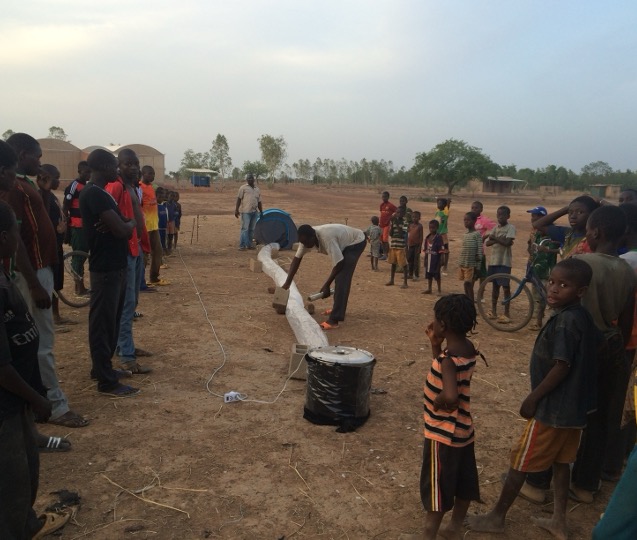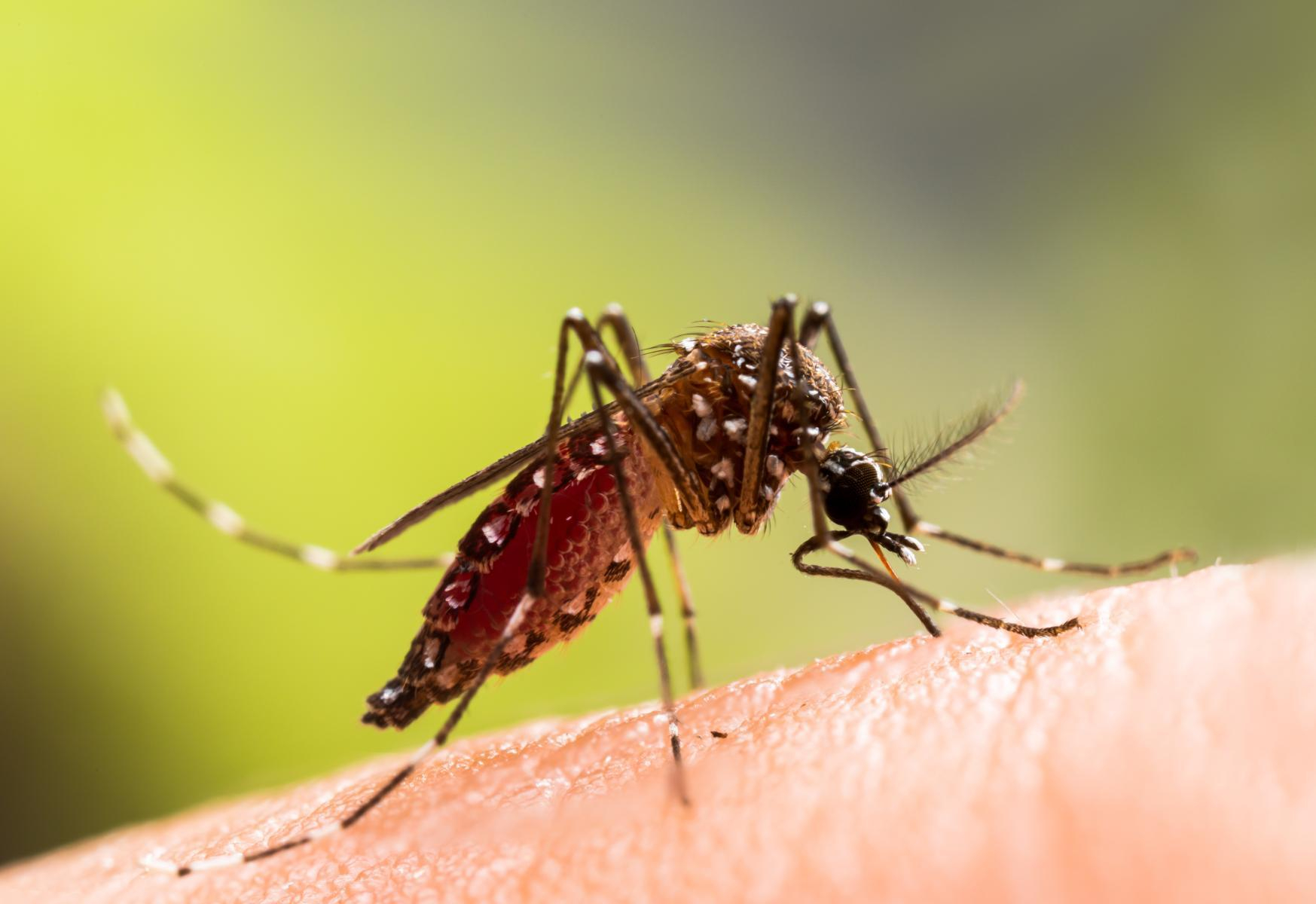Malaria remains an enduring threat to millions of people with a death toll of 608,000 across 85 countries in 2022 alone. Today, NRI joins the global community to commemorate World Malaria Day, an occasion to highlight achievements and the need for sustained investment and political commitment to malaria prevention and control. We acknowledge the global effort to end malaria, and below we highlight some of our contributions to this effort, working with partners in research, development and practice worldwide.
Understanding mosquito behaviour
NRI has a long track record of research to understand the dynamics of mosquito behaviour and ecology, and how this knowledge could be translated into effective control and prevention measures. Over the years, our research has explored mosquito habitat and egg-laying site preferences, and daily mosquito cycles and behaviour changes. Our scientists have also investigated the cues used by mosquitoes to successfully locate human hosts and how mosquitoes interact with their environments, among other topics. This research draws on the premise that a holistic understanding of mosquito behaviour is vital to effective malaria control and will ultimately be key to eradicating the disease.
Developing and optimising control measures
 Research at NRI has informed the development of various control or prevention approaches and identified opportunities for optimising existing measures. For example, NRI scientists developed and successfully tested a prototype trap for outdoor biting mosquitoes in Burkina Faso. This research on a new trap for malaria mosquitoes in Africa was the subject of "Our World: Living with malaria", a BBC documentary filmed on-site at NRI and in Burkina Faso with collaborators from the Institut de Recherche en Sciences de la Sante (IRSS).
Research at NRI has informed the development of various control or prevention approaches and identified opportunities for optimising existing measures. For example, NRI scientists developed and successfully tested a prototype trap for outdoor biting mosquitoes in Burkina Faso. This research on a new trap for malaria mosquitoes in Africa was the subject of "Our World: Living with malaria", a BBC documentary filmed on-site at NRI and in Burkina Faso with collaborators from the Institut de Recherche en Sciences de la Sante (IRSS).
A separate research project with partners in Sweden led to the development of a beet-based insecticidal cocktail for mosquitoes, providing another important malaria vector control option. The cocktail uses a chemical released into a host’s blood by the malaria parasite as bait to attract mosquitoes looking for a blood meal. This research explores an exciting frontier of using benign ingredients to develop environmentally friendly vector-control strategies.
In both these cases, NRI scientists are working to improve and optimise these control strategies to make them more widely applicable and effective.
Research evidence for control interventions
A significant portion of malaria-related research at NRI seeks to establish evidence and provide insights to support the development of new tools or optimisation of existing ones.
Research on habitat finding behaviour conducted with partners in Ethiopia and from Sweden found that malaria mosquitoes tend to rest in shaded areas some distance away from human dwellings. These findings provide important insights to inform efforts targeting mosquitoes outdoors, complementing the existing indoor control tools for malaria vectors. Another study identified predictors of mosquito density and malaria incidence in southern Ethiopia, helping to identify hotspots that could be prioritised by vector control interventions. Hotspot targeting could be vital for successful control strategies as hotspots are major reservoirs for malaria transmission, with higher malaria cases than neighbouring areas.
 This research is significant for two key reasons. First, there has been a shift among some malaria-transmitting mosquitoes from indoor feeding to seeking blood meals outdoors. Secondly, a significant proportion of malaria vectors have changed their biting activity to earlier in the night. Both these factors make current interventions that are mostly focused on indoor feeding less effective and establish a need for complementary methods to mount an effective vector control strategy.
This research is significant for two key reasons. First, there has been a shift among some malaria-transmitting mosquitoes from indoor feeding to seeking blood meals outdoors. Secondly, a significant proportion of malaria vectors have changed their biting activity to earlier in the night. Both these factors make current interventions that are mostly focused on indoor feeding less effective and establish a need for complementary methods to mount an effective vector control strategy.
More recently, a study determined that mass trapping using odour-based traps is an effective strategy to reduce malaria transmission and prevalence and can complement existing control strategies. This research also provides support for odour-baited technologies – one of several emerging malaria control technologies – as a viable option for next-generation vector control tools.
Professor Richard Hopkins said: ‘We need to develop novel tools that complement the existing control measures against malaria vectors. Together with our colleagues from Sweden and Ethiopia, we showed that trapping can suppress malaria when the traps are placed based on a better understanding of the behaviour of the mosquito. The more tools we have, the better we can contribute to controlling the spread of malaria.’
Rising insecticide resistance and changing transmission dynamics have created an urgent need for innovation in malaria vector control. Recent research led by NRI scientists identified features that could be incorporated into mosquito traps to improve their efficiency. For example, the study showed that some mosquito species land more on larger targets and visit them more often in comparison with smaller targets. This has implications for mosquito trap design. The researchers noted that minor changes in the features, including thermal and visual cues, can cause markedly different behavioural responses in mosquitoes which could then influence the effectiveness of vector control tools considering increasing insecticide resistance.
NRI’s Dr Manuela Carnaghi, lead author of the study said: ‘This work was focused on understanding which trap characteristics could be modified to reduce their cost whilst maintaining their performance. This is quite useful for mass trapping purposes, which are important for control or surveillance.’


